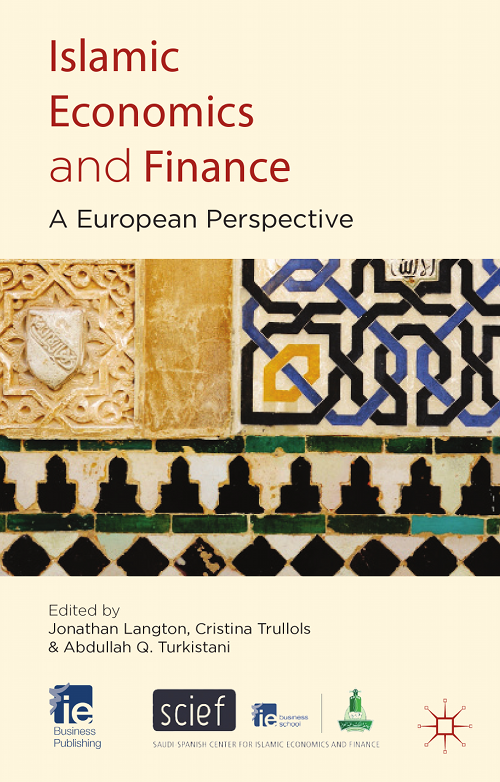As it has not been thought to invite me to speak at the presentation of the book that I wrote recently, here is the presentation I would have made.
Distinguished guests, ladies and gentlemen,
It is a pleasure for me to be here before you today, to present this book, which I believe is a poignant reflection on Islamic economics and finance in Western markets, particularly in Europe. The relevance of this book comes from the fact that it is predominantly the result of a candid and open discussion, among esteemed experts and interested professionals, held right here in this very business school.
In recent years, financiers, economists, politicians, and even the public at large, have been deliberating the subject of reinventing capitalism and reforming financial markets. The revolutionary steps that were at-first called for have been slow to materialise, but the situation has thrown much light on alternative models and approaches. One such alternative that has received renewed interest is Islamic finance and so this joint venture between King Abdulziz University and IE Business School is well timed, as was the inaugural symposium on which the book is based.
What has been most important in that exchange is that it brought face-to-face, experts from both conventional and Islamic economics and finance. The Islamic camp, as might be expected, have put forward some very robust arguments in favour of their approach, highlighting the common ground that exists between the shari’a law surrounding financial dealings and the Judeo-Christian origins of conventional finance. We should thank them for being so forth-coming and amenable to sharing with us the teachings of their discipline, particularly its ethical basis and its direct connection to productive industry, something that conventional markets are starting to accept has been lacking.
However the questions that have been raised by their conventional counterparts is equally enlightening. Far from being ignorant of Islamic finance, they do raise some very relevant concerns about how this philosophy, which expressly prohibits some fundamentally ingrained elements of Western capitalism, can be more widely adopted. Such issues include standardisation and regulation, legal certainty, and concepts surrounding the relative risk of equity investment versus debt (the current woes plaguing the eurozone notwithstanding). Even the question of governance, with respect to the responsibilities of Islamic scholars, proves to not always be better than for the much maligned heads of Western investment banks. You will see, in the book, that responses offered as explanations, often fail to address the issue. Its is not particularly surprising, given that this is the outcome of a dialogue amongst many interlocutors. However, for me, it does highlight a lack of alignment in the perspectives of the two sides.
It is widely accepted, amongst the Western delegates, that there are lessons to be learned, and specific advantages, arising from the Islamic alternative. These include the liquidity that the Gulf region represents globally and the clear synergies in project financing, both for tapping into that liquidity via projects in the West, but also for Western contractors looking to finance projects in the Gulf.
However, if Islamic finance is to move beyond being a niche financing mode for those of a particular religious orientation, there are some challenges. For instance, there are cases where the socially responsible investment movement in the West has already implemented, and sometimes even improved upon, models that one would expect to be associated with ethically-based Islamic finance. This is achieved presently without necessarily respecting the restrictions that shari’a imposes. To quote one speaker from the symposium “you can’t have Islamic champagne”. While that may be true, it does not mean that the champagne will stop flowing for Western markets that can adopt the better examples from Islamic finance, without fully respecting shari’a. And that would not achieve the objectives of the champions of Islamic finance.
To move beyond that niche position it seems to occupy at the moment, the markets need to arrive at something that might be called (borrowing from another speaker at the symposium) “the principle of indifference.” That is to say, the interested parties, from the purely financial perspective, would be indifferent to whether the applied instrument is conventional or Islamic. Achieving this in certain jurisdictions, for instance the US and the UK, is considerably easier than in others. But in almost all cases, some kind of revision of the law or regulation is required, and the case to justify such a change will have to be robust and persuasive.
I would like to take this opportunity to thank a number of people. Thanks to José Luis Pérez Estévez, former director of CIEF, and Elisa Meléndez Martín, from Center for Diversity in Global Management, IE Business School, who together organised and oversaw the symposium. Thanks also to Dr Celia de Anca and Dr Hisham Bardesi for their work with the center and in supporting this publication. I would like to make mention also of Lisa von Fircks and Gemma D’Arcy Hughes, our contacts at Palgrave Macmillan, who have been most patient and helpful to a couple of first timers. Of course, many thanks to all of the authors that have contributed chapters to the book and to the chairmen and delegates that attended the symposium and so generously shared their knowledge and engaged in the discussion of this subject. And finally, thanks also to my co-editors for their help and support.
And so we thank you and give you this book. Our work, but your ideas.
